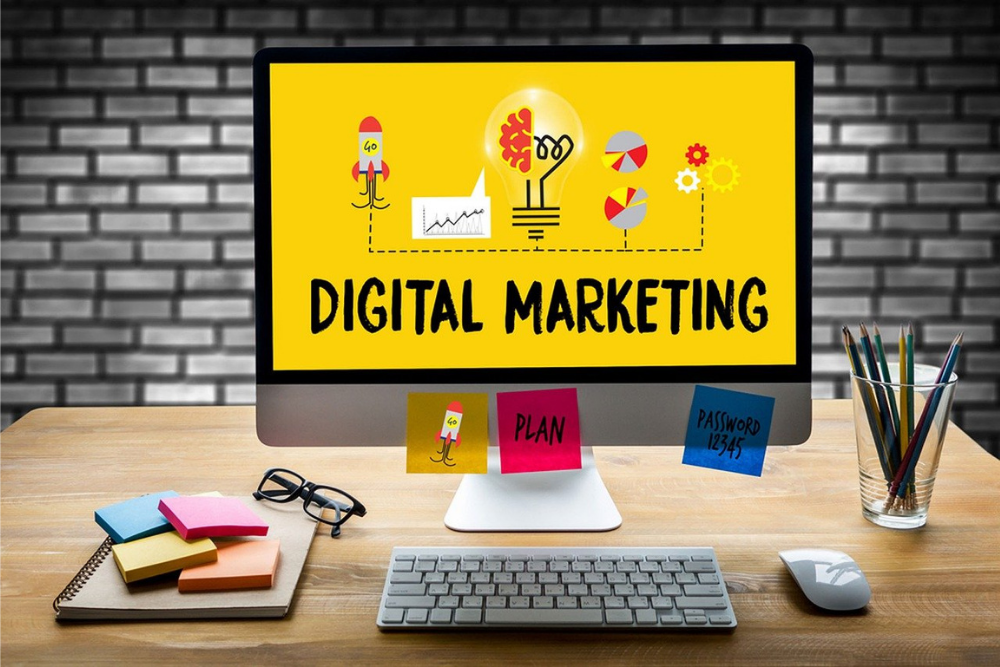There are many reasons why a business might choose to hire a digital marketing consultant. For most, it’s a fantastic decision. More than 90% of people find brands via search engines and social media. And that’s just one of the reasons why investing in digital marketing is so important.
But how do you know which consultant to hire and whether they’re the right fit for your business? Well, a good place to start is their skill set. After all, the decision comes down to the individual needs of your business.
In this blog post, you will learn about the skills of a digital marketing consultant and why having professional advice in these critical areas of digital will benefit your business.
From content marketing and SEO to email marketing and e-commerce, we’ve covered all the skills so you can confidently choose the right person for the job.
8 Skills That a Digital Marketing Consultant Must Have
Hiring an experienced marketing consultant has many advantages. You add a professional to your team and save money while increasing the effectiveness of your marketing campaigns.
But what makes a good digital marketing consultant? To answer this question, let us look at the 8 essential skills a professional should have.
 1. Search Engine Optimisation | SEO
1. Search Engine Optimisation | SEO
SEO has everything to do with your website and its ranking in search engines like Google. A professional marketing consultant knows how to help your website rank higher by optimising it for search results.
The biggest benefit of SEO is that it helps you gain qualified, inbound leads that cost less than advertising and deliver higher conversion rates. Keep in mind that more than 90% of online experiences start with a search on Google, so it’s kind of essential that your business can be found in keyword searches.
SEO is a technical skill and not simply about keywords on a page, however. Here are just a few SEO concepts that a digital marketing consultant should understand; indexing, UX, core vitals, link structure, anchor text, metadata, alt tags, backlinks, do-follow vs no-follow, and domain authority. They should also know how to research keywords and analyse competitors to replicate links.
 2. Email Marketing | EDM
2. Email Marketing | EDM
Digital marketing consultants should understand how email marketing works. This strategy uses types of emails like storytelling, newsletters and re-engagement emails. It’s often referred to as Electronic Direct Marketing and emails are known as EDMs.
Email marketing has a higher ROI (return on investment) than other marketing strategies like social media marketing. It is also one of the most effective methods for engaging customers in eCommerce, with automation tactics increasing conversions by recovering cart abandonments and upselling.
Another benefit of email marketing is that your email list can be one of your most valuable assets. Unlike social media where the audience belongs to the platform and you compete with their algorithms, your email list is your own. Therefore, strategies for list building are another essential skill for digital marketing consultants to have.
With most consumers checking emails on their mobile devices, your digital marketing consultant should know how to optimise content and templates for mobiles, as well as know how to best schedule your EDMs for the best open and click-through rates.
 3. Content Marketing
3. Content Marketing
Contrary to what many believe, your content is not limited to your website’s blog posts. The term encompasses any type of information (emails, e-books, social media posts, podcasts, etc.) that you create.
Content marketing is about building a trusting relationship with your target audience while feeding them good content that they can engage with and value. A good consultant will help you leverage information to build brand awareness and drive customers to action.
This type of marketing includes:
| SEO-optimised content, e.g., blog posts | Social media content | Publications, e.g., eBooks and resources | Videos and audio productions, e.g., podcasts |
Types of Content used in Content Marketing
 4. Social Media Marketing
4. Social Media Marketing
Social media marketing has everything to do with a company’s social media strategy and channels. Most brands these days have business accounts on social media.
However, a digital marketing consultant has more than just the knowledge of how to post. They can design effective strategies that deliver real results, rather than just vanity metrics, and also automate social media, so it consumes fewer resources.
Scheduling and automating posts on social media is a data-led approach, which requires some analysis of the best time and day to get the biggest impact. There are tools like Buffer and Later that social media marketers use for scheduling.
Digital marketing consultants are also responsible for analysing social media performance. Analytics are crucial when it comes to getting ROI from paid social media campaigns and generating new leads from socials.
 5. PPC: Social Media & Google Ads
5. PPC: Social Media & Google Ads
Pay-per-click (PPC) is a term used for paid ads and promotions across search engines and social media. PPC helps businesses drive more traffic and leads to their website.
In a typical PPC model, you only pay when someone clicks on your ad and visits your website. This category includes ad types such as:
- Google Ads
- Ads in YouTube videos
- Ads in mobile apps
- Display ads on websites
- Ads on social media, eg Facebook, Instagram, etc.
A digital marketing consultant can develop a strategy according to your needs and budget that includes keywords, targeting and ad copy. They can also help you set up marketing campaigns and understand the technical factors involved. And their contribution doesn’t stop there. They can help you to optimise and manage your campaigns, which is especially important as campaigns require ongoing maintenance and adjustments to ensure they are delivering results.
 6. Marketing Data & Analytics
6. Marketing Data & Analytics
Digital marketing is ultimately measurable. This means that digital marketers can help you track the performance of your marketing at any given point in time. This is possible through data and analytics that track user behaviour.
Analytics can help you and your digital marketing consultant in the following ways:
- Gain an understanding of which types of marketing work best (and which do not) for your business based on audience behaviour.
- Determine the keywords, copy or creative that drives the best engagement and goal conversions.
- Make strategic decisions and create more effective campaigns over time.
Analytics tools, such as Google Analytics, are customisable. And such platforms offer endless opportunities to measure your brand’s online performance if you know how to set them up properly. A professional is usually required to set up all the features that make GA most useful for helping with marketing decision-making.
 7. E-commerce
7. E-commerce
The global e-commerce market was approaching $5 trillion at the end of 2021. E-commerce has become an indispensable channel for the retail industry around the globe.
Of course, this also means that competition has become fierce. For this reason, a digital marketing consultant will bring the required understanding of how the e-commerce industry works.
Likewise, a professional consultant can help you:
- Choose the right e-commerce platform for your business.
- Implement marketing strategies such as email marketing, content marketing and social media marketing to attract customers.
- Choose the best e-commerce plugins for your online store.
- Measure your performance with analytics, and adjust accordingly.
 8. Mobile Marketing
8. Mobile Marketing
Mobile marketing is very important if you want to promote your brand on mobile devices. This type of marketing includes mobile apps, social media, responsive websites, text messaging and emails.
With consumers spending around 5 hours per day on their mobile devices, investment in mobile marketing is crucial. A great marketing consultant knows how to best optimise a website, emails or social media content for mobile devices.
In addition, smartphone apps can take your mobile marketing to the next level, especially when it comes to eCommerce which has proven apps get higher conversion rates. It is obvious that this skill has become essential for digital marketing consultants.
Wrap Up
The above list contains all the hard skills a digital marketing consultant should have in 2022. We covered:
- Search Engine Optimisation | SEO
- Email Marketing | EDM
- Content Marketing
- Social Media Marketing
- PPC: Social Media & Google Ads
- Marketing Data & Analytics
- E-commerce
- Mobile Marketing
Still, hard skills aren’t everything. In fact, soft skills like adaptability, creativity, and persuasion are also important for marketers. Moreover, a professional consultant should have leadership skills, a motivated attitude, and exceptional professionalism.
By combining hard and soft skills, a digital marketing consultant can deliver fantastic results and be a great investment for any business.
